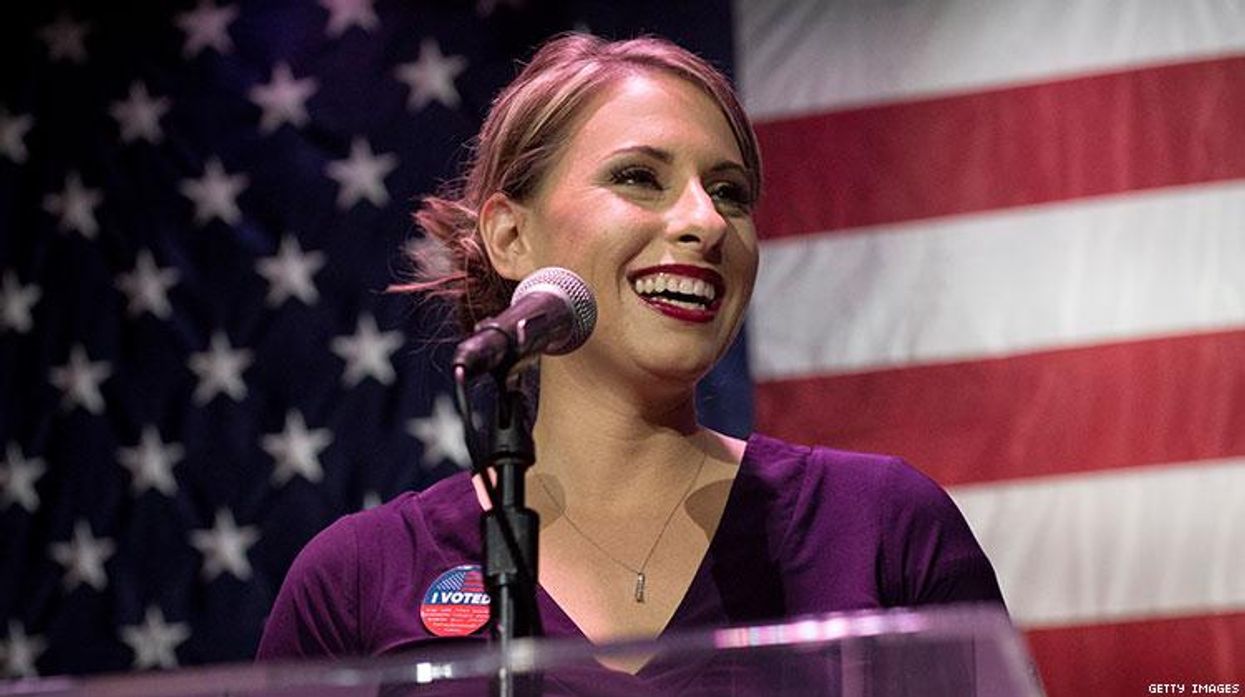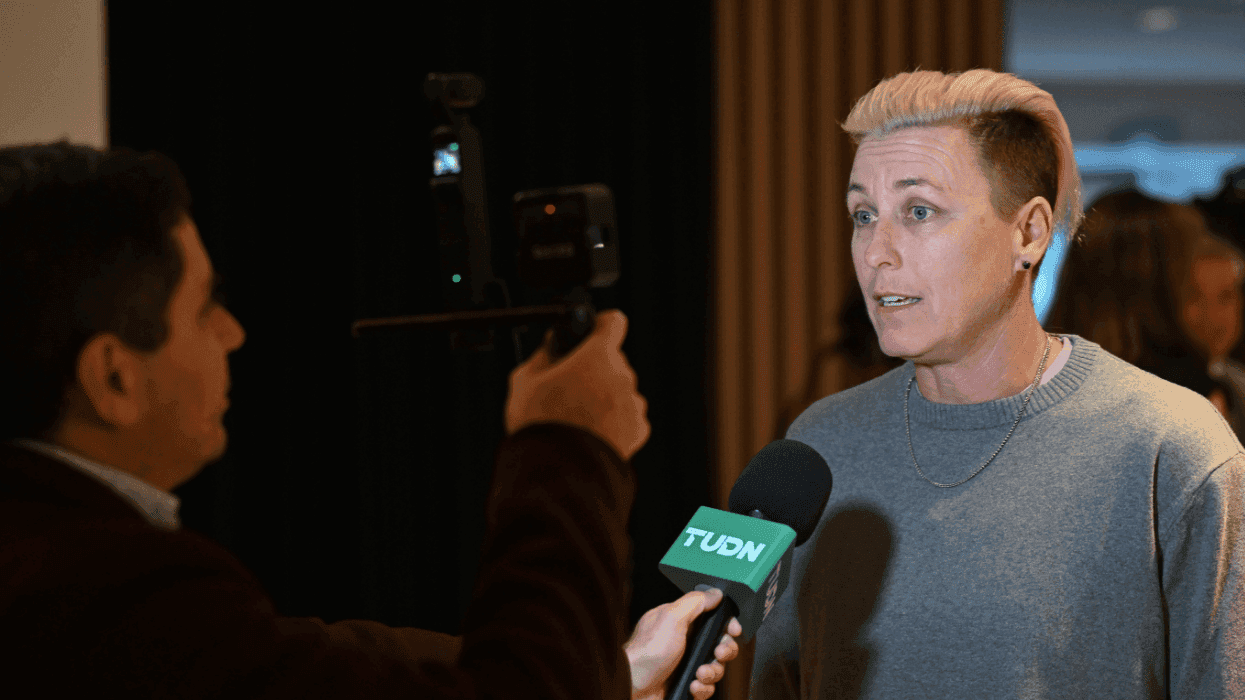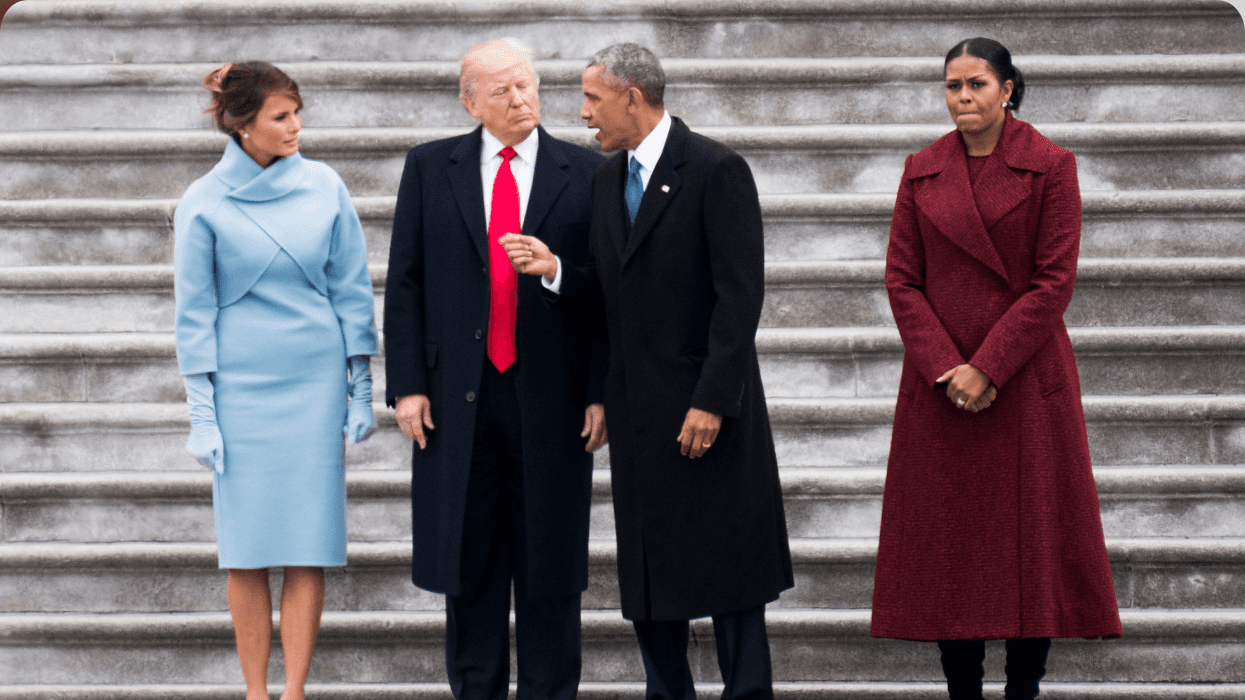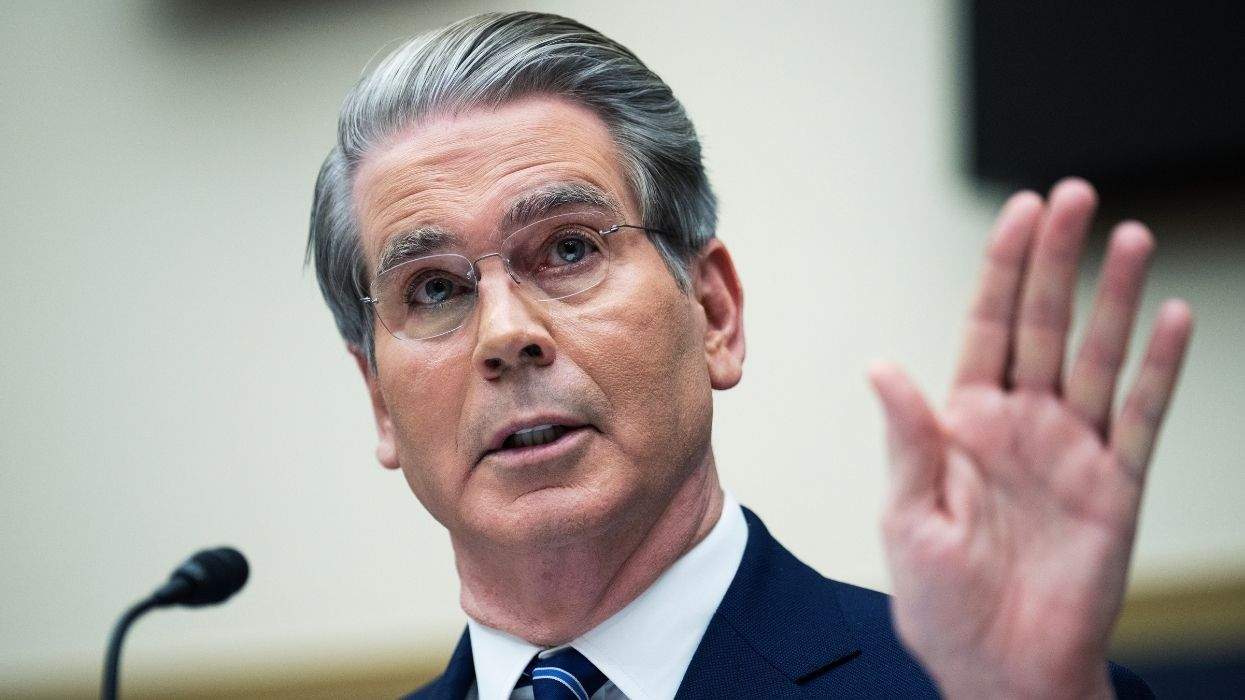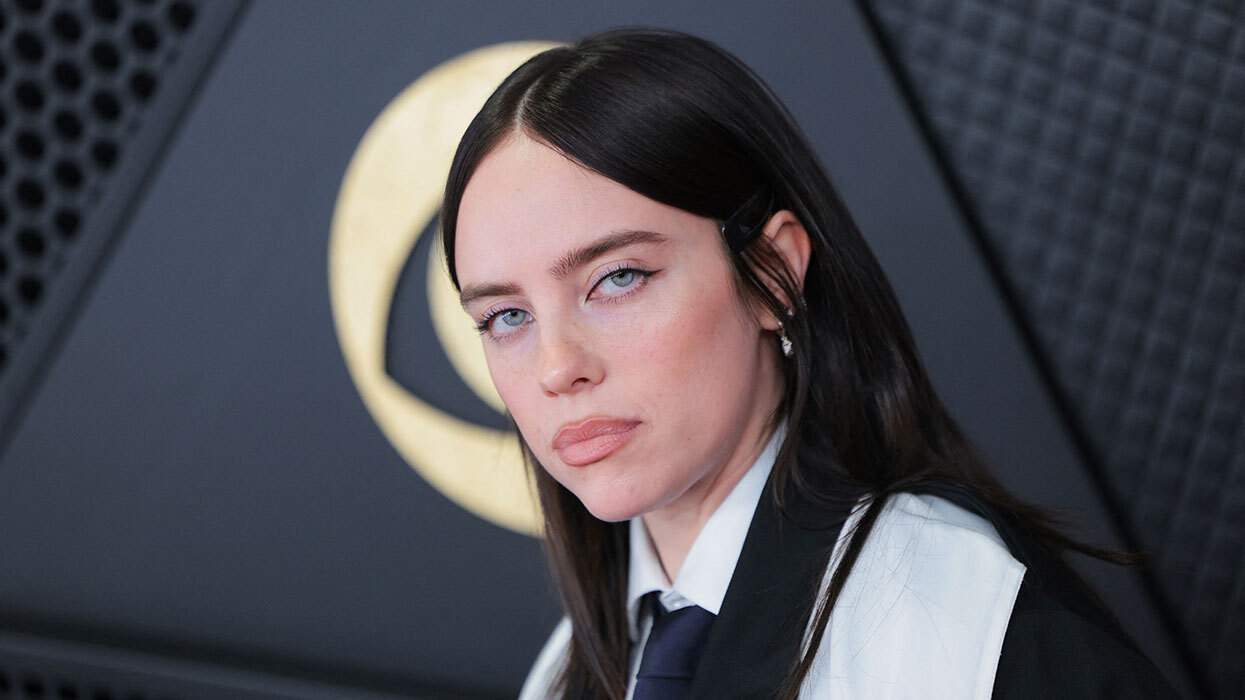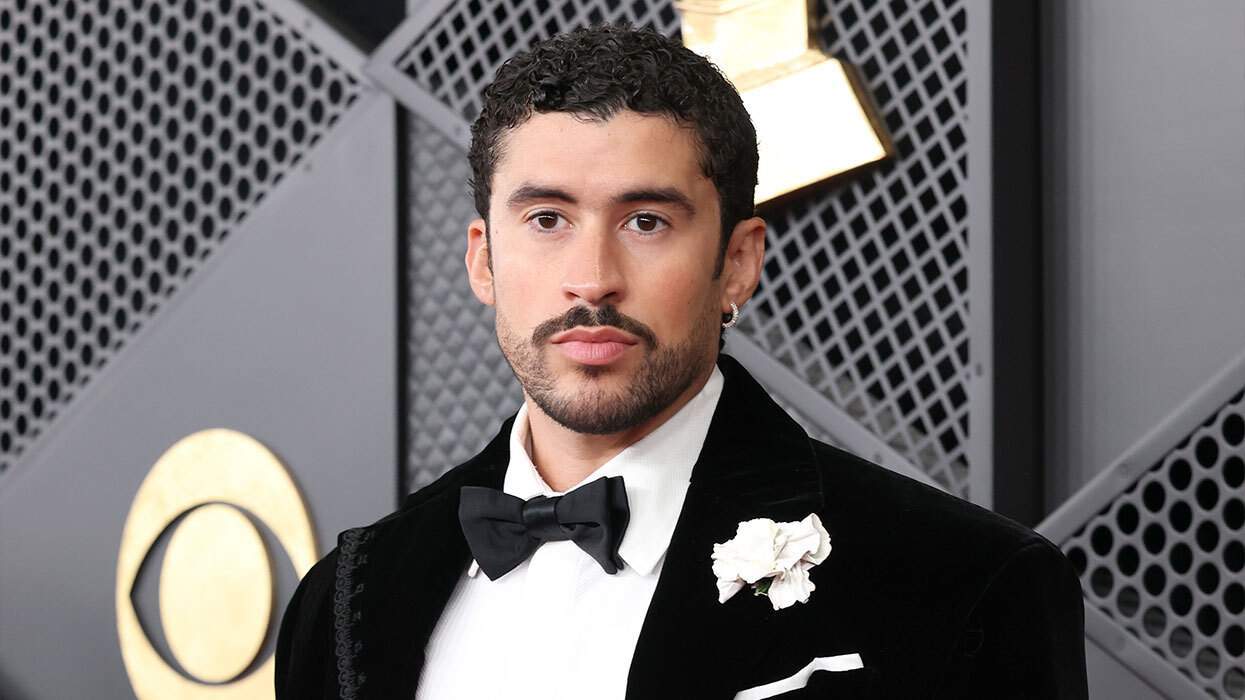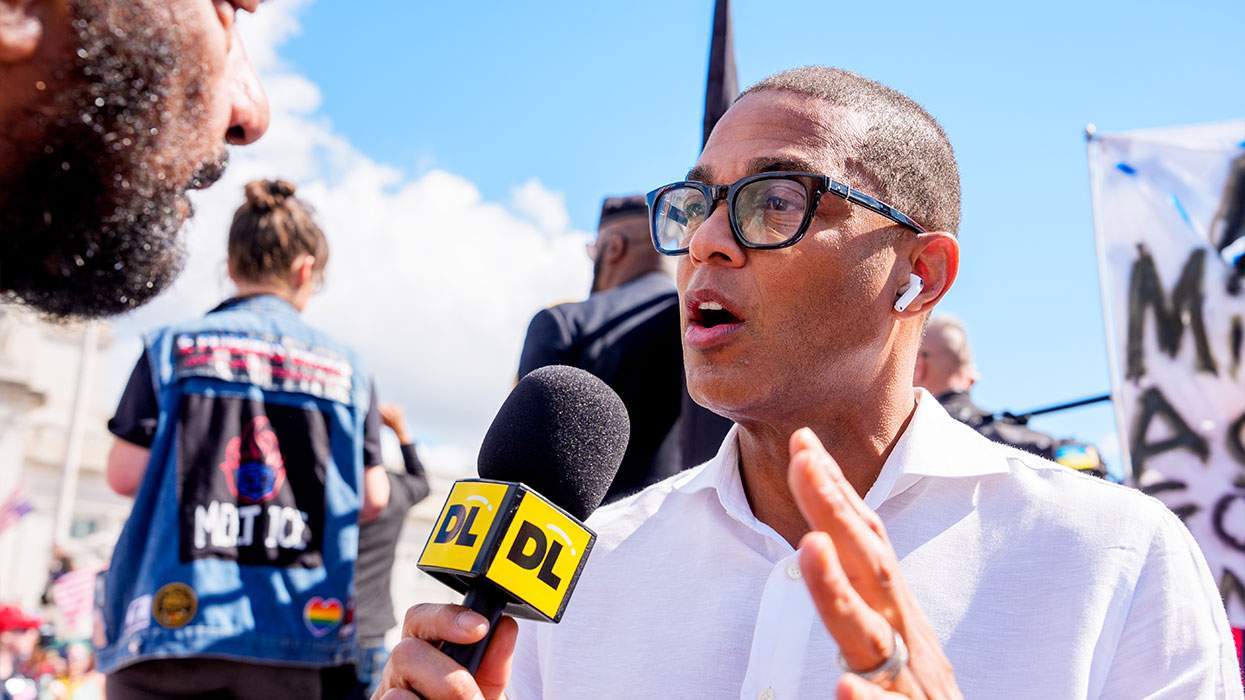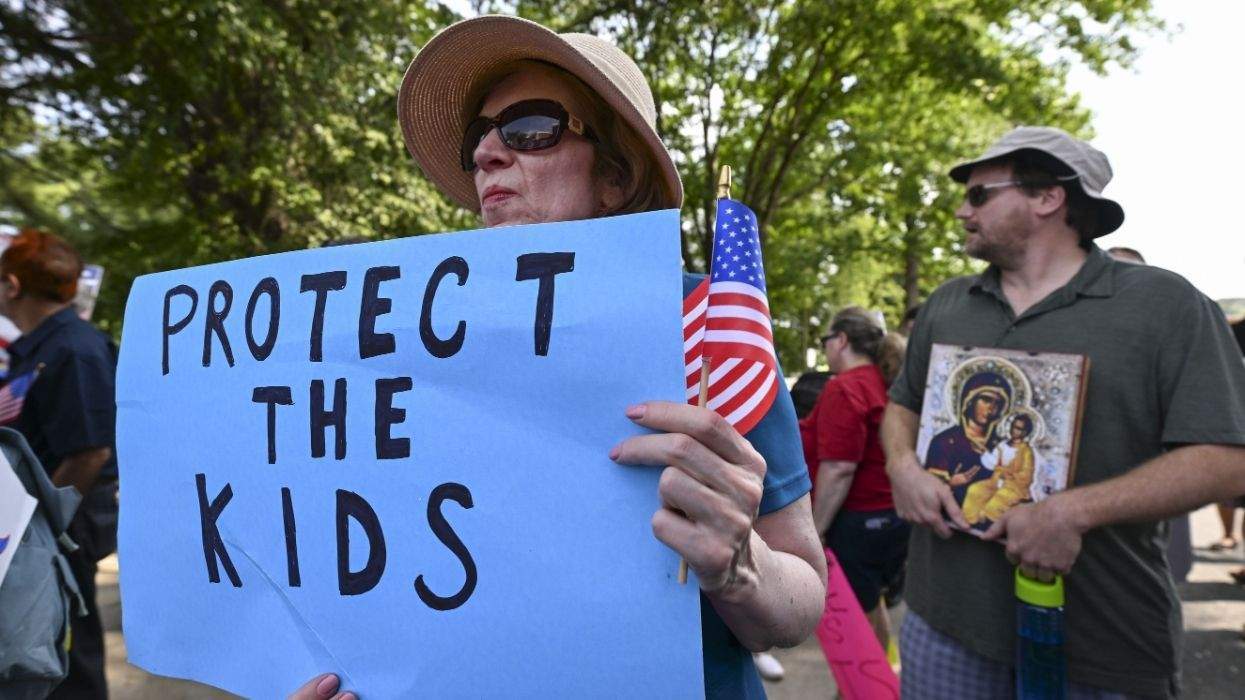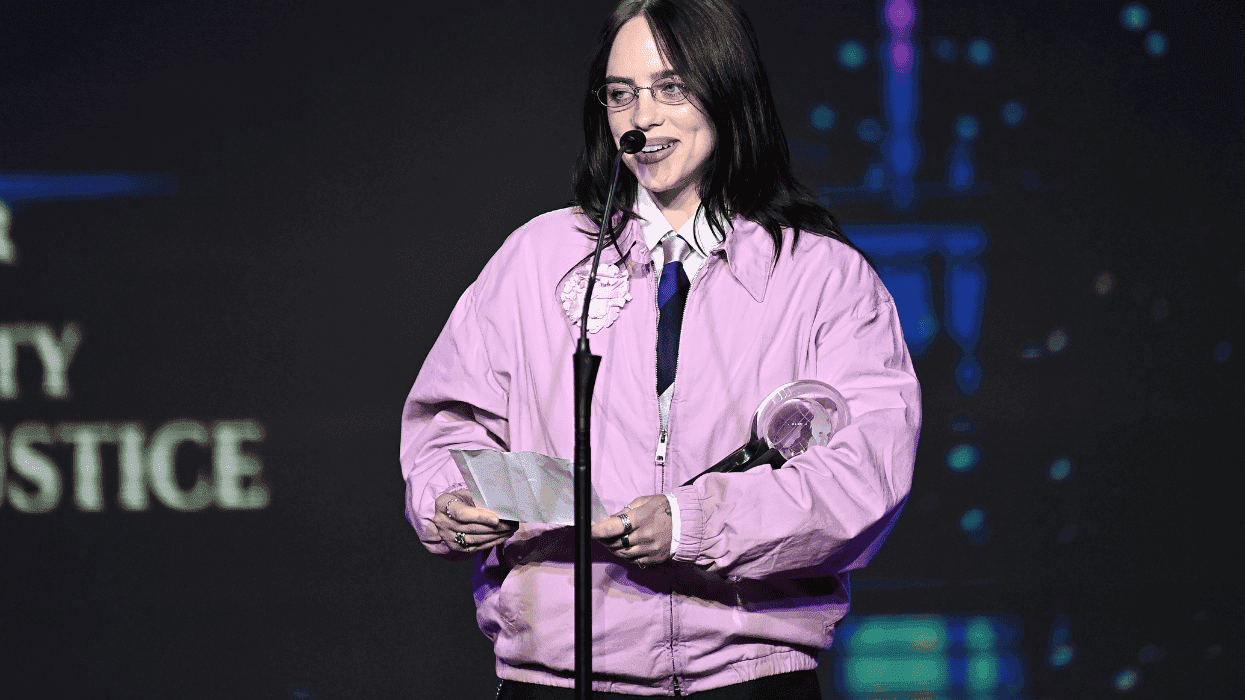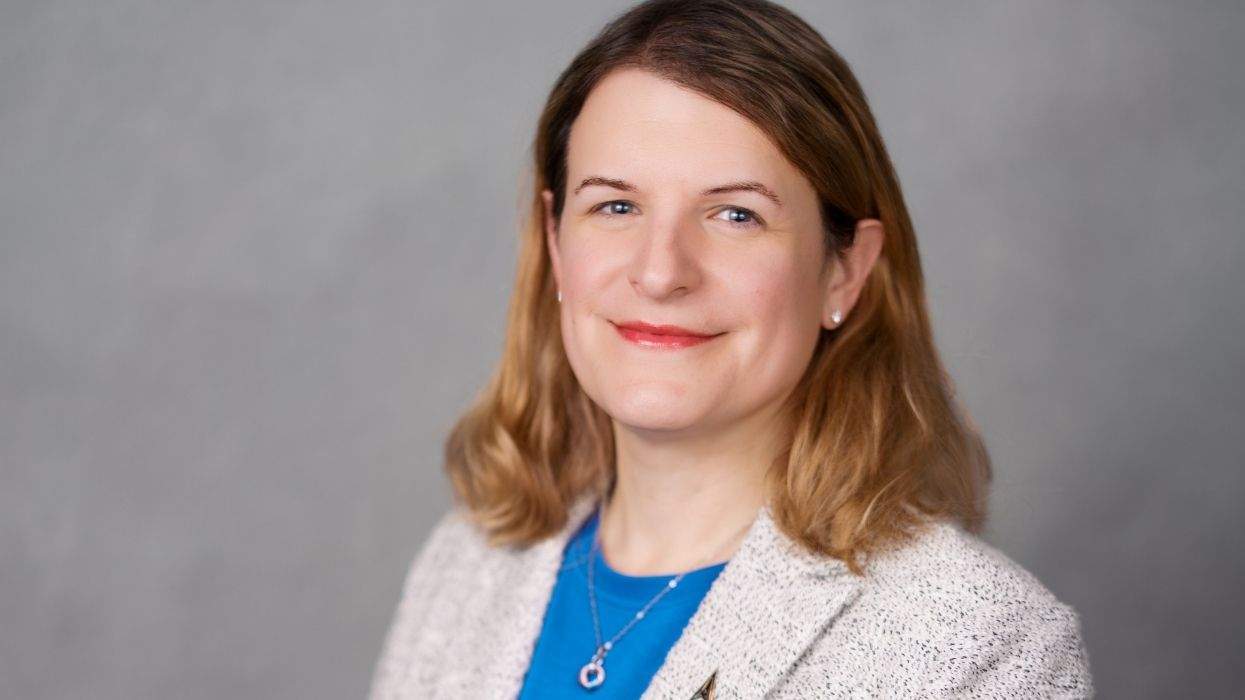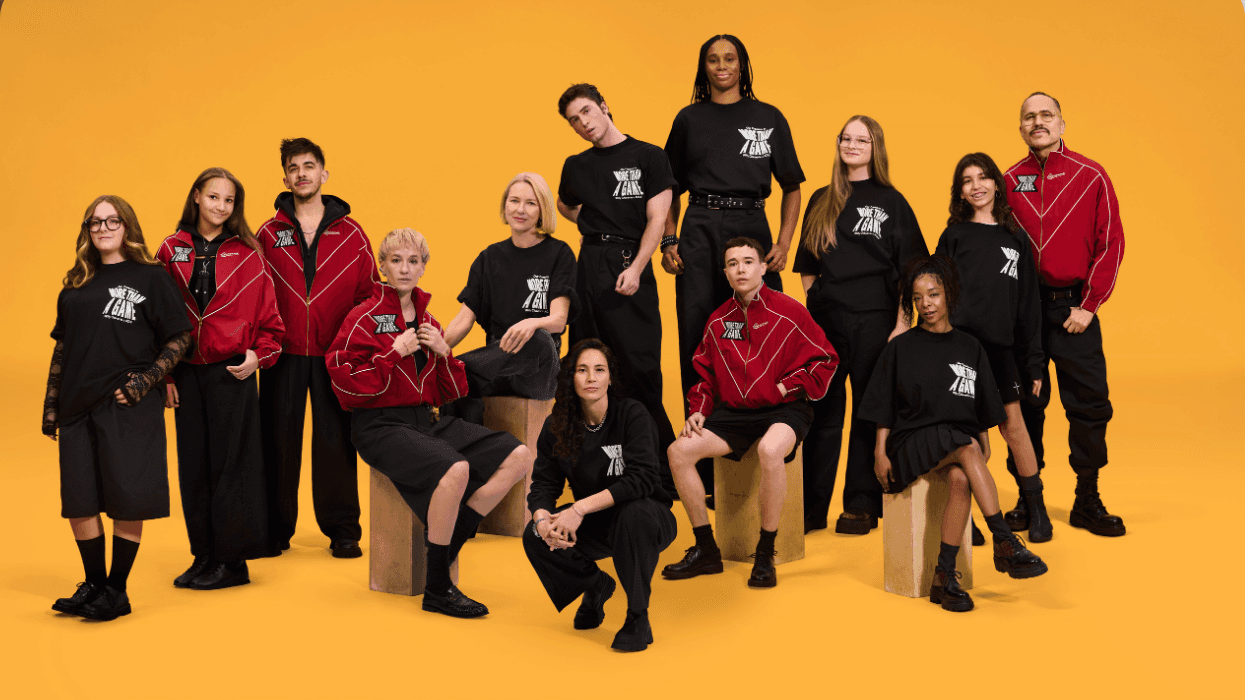Nearly two decades ago, a man detested the idea of same-sex marriage so much that he began a 13-year legal battle across the state of California and the nation. State Sen. Peter Knight of Palmdale tried to invalidate marriage equality five times and was successful with his sixth, Proposition 22, which kicked off an epic legal battle in California.
Knight also had two sons. One son, David, is a gay man who once said his father was taking "uncaring, uninformed" action against LGBTQ+ people. His other son, Steve, became a Republican congressman, representing the same region as his dad, presiding over a district of blue-collar workers, a solid contingent of Mormons, a smattering of white supremacists, farmland, the suburbs, a little urban spillover from Los Angeles, and the Ronald Reagan Presidential Library. That was, until last year, when the Knight dynasty was finally bested. In a form of poetic justice so rarely earned in American politics, a 31-year-old bisexual woman named Katie Hill took the seat in Congress.
"I've actually lived in most parts of the district," Hill reveals. "The conservative elements are still there. Around my second- or third-grade year, we had a major problem with neo-Nazi gangs rising up. We had to have an intervention at our elementary school because there were swastikas being graffitied all over the place." She goes on to share that Proposition 8, the 2008 ballot initiative that made same-sex marriage illegal across the state, "passed in our district by 62-38, so the fact that I got elected there 10 years later is pretty amazing."
Just two years before her election, Hill -- then an executive at People Assisting the Homeless, one of the largest such nonprofits in Los Angeles -- successfully drummed up votes for two affordable housing ballot initiatives in a region with a homelessness epidemic. She says she was inspired to run after learning her district's seat could be flipped for a Democrat. A female colleague asked her, "Why don't you run?"
As a splash in the 2018 midterm election's "blue wave," where Democrats flipped seats in Congress and statehouses across the U.S., Hill is now one of five out lesbian or bisexual congresswomen, and came to office in a year when a record number of women were elected. They, like Hill, were fed up. And this queer cohort of Democrats wasn't simply handed its victories; many of these women won over purple -- if not red -- districts and states, all while leaning into their identities. While Kyrsten Sinema was polling ahead of Martha McSally for the Arizona Senate seat (left open by departing Republican Jeff Flake), she won narrowly in a state that hadn't elected a Democratic senator in 30 years. Tammy Baldwin first took Wisconsin's junior Senate seat two years after the state elected conservative anti-labor Gov. Scott Walker (who was ousted in 2018). Sharice Davids -- one of the two first Native American congresswomen in history -- represents a condensed, fairly conservative district in solid-red Kansas, and human resources executive Angie Craig won a red district in suburban Minneapolis in a rematch against a Republican incumbent.
Even with her district's voting tendencies, Craig says, "The fact that I have a wife and four sons never became a part of the race in this historically Republican district. I think what we want most out of our leaders is authenticity, so in my first [advertisement], I introduced the district to my family, then spent the entire race talking about kitchen table issues like lowering the cost of health care, the desire for all of our children to have a quality education, and the need to invest in the infrastructure of our communities. That said, I'm very proud that my wife is [among] the first lesbian women to receive a spouse pin, and that I am the first lesbian mother to ever serve in Congress."
In fact, all of the congresswomen who spoke with Out say they decided to put their sexual orientation out there, and let voters decide whether they cared about it. "I think we talked a lot about my professional experience and then kind of said, 'Also, I'm a Native American, who was raised by a single mom, and I'm part of the LGBT community,'" Davids says. "I would never shy away from who I am. I've never felt like I needed to do that, but I also really wanted to make sure that people understood what my professional qualifications were for the role."
Hill says she and her campaign staff decided to just include that she is bisexual in the campaign materials and see if anyone noticed; eventually they did. "One of my favorite parts during the primary," she says with a laugh, "was when I was accused of pretending to be bisexual so that I could get the endorsement of LGBT groups." Hill says she's also found herself explaining to well-meaning Democrats in the over-60 crowd that one could indeed be married to a man and still be openly bi. In the long run, voters say they "don't care who she sleeps with," they just want her to defend the Affordable Care Act, as promised.
Perhaps these women are taking a page out of Baldwin's playbook, who's represented her state -- first as a congresswoman and later, a senator -- since 1998 as the first LGBTQ+ non-incumbent to be elected to Congress while out. She's been an out lesbian since college, bringing that authenticity to her political career beginning in the mid-1980s in local Madison politics. But she knows she stands on the shoulders of Ann Arbor, Michigan, city council member Kathy Kozachenko and Massachusetts state Rep. Elaine Noble -- two women who were both out when they ran for public office in the 1970s. Around her first election in 1986 to the Dane County Board of Supervisors, Baldwin found a small group of LGBTQ+ politicians who decided to get together once a year to talk shop and build a
support network.
"There was one member of British Parliament there, so we called ourselves an international group. We just shared everything," she says, adding that they even tried to figure out how many out politicians there were in the world. "We're like, 'There's the 14 of us, there was an Iowa mayor who couldn't come out' -- we figured that there were probably about two dozen openly LGBTQ elected officials in the world, that we knew of." And they all fit into one small room. Now there are hundreds across the U.S. alone.
For women who took Congress this session, whether they are queer, Muslim, a sexual assault survivor, covered in tattoos, breastfeeding, or supporting family members with addiction, taking their full selves to campaign rallies -- and inevitably, Congress -- may have drawn more voters in than turned them away. Besides, if a foul-mouthed adulterer can be the president of the United States, it was time to loosen the rules around what an elected official "looks like," anyway.
Jean Sinzdak, the associate director for the Center for American Women in Politics at Rutgers University, says sharing personal narratives is what sets this congressional class apart from its predecessors. "Historically, for women candidates, it's been a task of trying to fit yourself into a mold of what voters expect to see," which she says "tends to be an older white male. So women have just been like, if you have small children at home, you wouldn't necessarily call attention to that in case people ask you, 'Why aren't you home with
your kids?'"
For members like Craig, her personal narrative is what makes her such a compelling lawmaker. While living in Tennessee in 1997, Craig and her partner at the time were set to adopt a baby, but on the day of his birth, the couple was stopped at the hospital. The woman's parents threatened to kick her out of their house if she gave the child to a lesbian couple. Craig and her partner left the hospital without a child. Months later, the woman left her parents' home and contacted them to turn the boy over to Craig and her partner. Within days, the grandparents filed to adopt the boy instead, thus igniting a three-year legal fight, during which one judge said allowing "open, practicing lesbians" to be parents would not be "in the best interests of any child." Eventually Craig and her partner won their appeal, allowing the couple to formally adopt the child, but Craig says in an emailed statement to Out, "we also have work to do to ensure that LGBTQ parents are able to adopt in every state."
This lack of protections is what drives Craig, she says. "Unfortunately, attacks on the LGBTQ+ community remain a constant reality. It is a common misconception that after marriage equality, LGBTQ+ Americans achieved full equality under the law. That is simply not true."
Davids sees in her own story the ways that educational and economic opportunities can shape a person's life. She went from the child of a single mother to a mixed martial arts fighter, a community college student to a Cornell Law School student and a White House fellow, a corporate lawyer to a coffee company owner, and from South Dakota's Pine Ridge Reservation to the U.S. Capitol. Like Hill, she saw an opportunity to bring her career and life experience to the political stage. Davids and Hill are just two of the 131 women who are part of the most diverse freshmen class in congressional history.
As co-chairs of the LGBT Equality Caucus, the next major challenge for out Congress members and allies is HR 5, or the Equality Act. This bill would provide protections nationwide on the basis of gender identity and sexual orientation against discrimination in employment, education, credit housing, public accommodations, and federally funded programs. It would also codify certain anti-discrimination protections for women and extend discrimination protections for people of color. All of the congresswomen agree that this bill will pass the House, as House Speaker Nancy Pelosi declared it a legislative priority this session.
For Baldwin, it's hard to say whether the Equality Act will advance out of committee, especially because "it's hard to move something if Senate Majority Leader Mitch McConnell (R-KY) is going to block it." But even passing the House, the members say, is an important step toward eventually enacting it. "I do believe that a lot of folks, not only across America, but even within the LGBTQ community, think that once the marriage equality case was decided that formal equality was achieved," Baldwin says. "Educating around the fact that 29 states still lack full protections is a key to advancing this."
As far as legislating more broadly, though, Davids says the diverse experiences among this new class in Congress provides insight into more inclusive, grassroots policies. "The background and expertise that folks are bringing to the table now is so different, and I think that's where the strongest impact is going to come from."
Women are not yet 50 percent of members of Congress, but "Congress is increasingly more reflective of our constituents, of America," Baldwin says. "It's not just the old days of an all-male club."
This article appears in Out's June/July 2019 issue celebrating Stonewall 50. The three covers feature the complicated candidacy of presidential candidate Pete Buttigieg, the enduring legacy of activist Sylvia Rivera, and the triumphant star power of actress Mj Rodriguez. To read more, grab your own copy of the issue on Kindle, Nook, Zinio or (newly) Apple News+ today. Preview more of the issue here and click here to subscribe.


